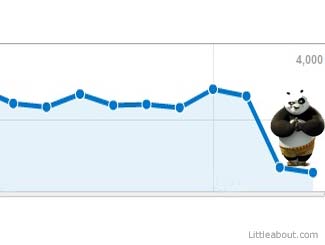5 less known but important Ranking Factors that affect Search Engine Results
 Usually in the world of SEO, the links and the content are considered to be the two most important parts of the strategy that one should optimize in order to achieve high rankings. Despite the fact that Google and the other major search engines use a large number of signals to ensure the quality and diversity of the results, it seems that the only types of factors that really matter are the ones related to links and content, right? WRONG! In this article, we provide a list of 5 less known SEO factors and we discuss their effects on search engine rankings.
Usually in the world of SEO, the links and the content are considered to be the two most important parts of the strategy that one should optimize in order to achieve high rankings. Despite the fact that Google and the other major search engines use a large number of signals to ensure the quality and diversity of the results, it seems that the only types of factors that really matter are the ones related to links and content, right? WRONG! In this article, we provide a list of 5 less known SEO factors and we discuss their effects on search engine rankings.
1. The location of the server
Google and other major search engines use the physical location of the server as a signal. This signal becomes even more important when the domains have a generic TLD (such .com, .net, .gov etc) and when their webmasters have not enabled the Geographic Targeting Feature on Google Webmaster tools console.
At Web SEO Analytics we know the importance of the server location from first hand, since our Datacenter and servers are located in Romania. Even though our company has absolutely no other connection to Romania (other than the hosting), our websites achieve extremely high rankings for highly competitive keywords on Google Romania. Moreover when a user from Romania searches for the terms “google”, “youtube”, “facebook” etc on the European version of Ask.com (which is powered by Google), he/she will receive on the first page at least one relevant article from our blog! So trust us when we say that the location of the server can definitely be important.
2. Other Geo signals
As we said above the major search engines try to detect if a website is related to a particular region and if their content is more relevant to a specific location. As a result they don’t rely only on the IP and the TLD but they use several other signals such as the location of the incoming links, traffic information, signals that come from the text and the language of the document etc. Many SEOs speculate that geo information from Social Media and Chrome is also used, but this is not officially confirmed by Google. Note that usually search engines rely more on the above signals when there is no hard evidence about the real Geo targeting of the website.
3. Freshness
When the first search engines where introduced, their primary target was to locate the most relevant and trusted pages/websites of the web. Moreover at that time their indexes were updated much less regularly and as a result the information that they served was not very fresh. Over the years, the major Search Engines changed the structure (caffeine update) of the indexes and their algorithms in order to be able to provide new pieces of content faster.
Nowadays search engines try to provide to the users not only trusted relevant pages but also the ones that are fresh. New pieces of content that are published by trusted websites are known to out-rank old pages that have lots of reputable links. Of course this also depends on the keyword and the type of search (news, blogs, discussions etc). As a result updating the content of your website regularly and adding new pages is something that can positively affect your rankings and your organic traffic.
4. Social Media Reputation
The use of social media data as signal is something that SEO Professionals suspected for years but it has been denied several times by Google. Finally few months back, both Google and Bing confirmed that they use Social Media data in their algorithms. Since then several case studies have been published concerning the importance of Social Media in rankings. We should note that the social media popularity over time can be also used as a signal for page freshness. If a page continues to be shared among the users, then it means that it is still a valuable source of information and still up-to-date.
The release of Google +1 made it even more obvious that Google wants to be able to understand which pages are popular to the users by using their own metric. If you want to read more about the effects and the importance of +1 on SEO read the article “The new Google +1 button and the Effects on SEO”.
At Web SEO Analytics we were certain about the effect of Social Media Reputation on SEO and thus before we get the confirmation from the major Search Engines we have developed the WuzzRank metric, which measures the popularity of a particular page on Social Media. If you want to calculate the WuzzRank of your webpages you can use the WuzzRank Calculator Tool.
5. Speed and Usability
The last few years, Google tried to add speed and usability into the game and this became even more profound after the Panda update. As we stressed numerous times in the past, creating a good site with high quality content and offering a great user experience to the visitor is a solid strategy in order to improve your rankings and increase your organic traffic.

After the Panda Update, Google started to use even more machine learning algorithms to detect which websites offer good user experience and which are user-friendly. Few of the factors that are suspected to be used after the Panda Update is the Social Media data, the Advertising to content ratio, traffic information (Bounce Rate, Time on Site, Organic vs Direct vs Referring ratios), the CTR on SERPs etc.
One should note that this list is far from complete, since there are several other signals that are often disregarded by the webmasters such as position of text, the internal link structure, the domain diversity, the history of the IP address, the number of domains per IP address and more. Nevertheless the ones that we listed above are by far the most important ones and typically affect most websites. If you want to learn more about the overestimated and underestimated Google Ranking factors, I strongly recommend reading the recent post of Tad Chef.

 21 Comments
21 Comments


